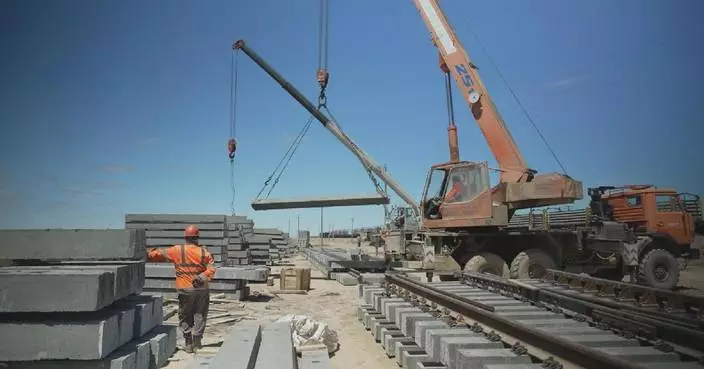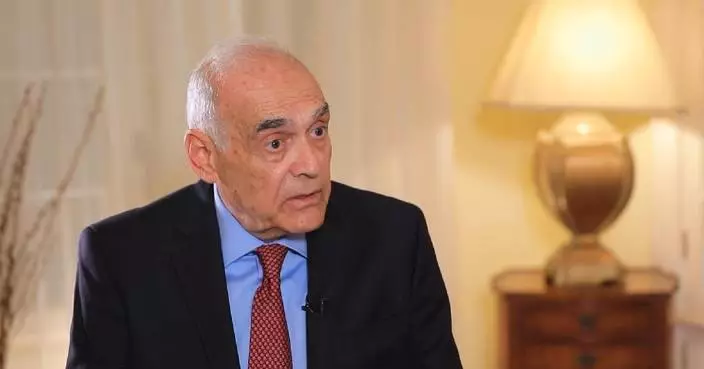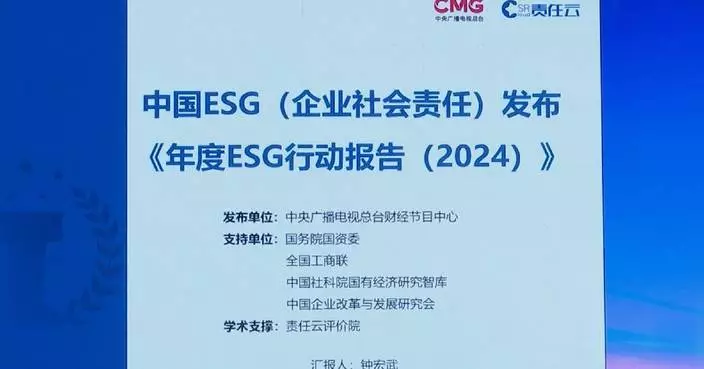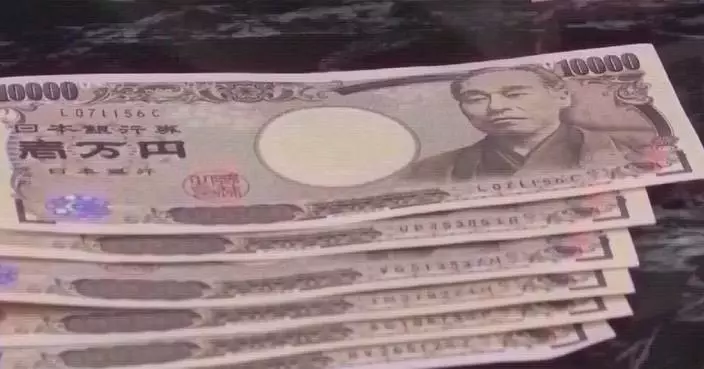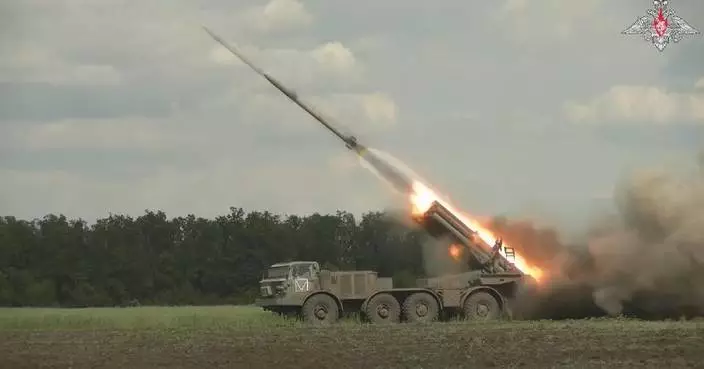A delegation of foreign media professionals from 13 countries have lauded the ecological restoration achievements in Aksu Prefecture of northwest China's Xinjiang Uygur Autonomous Region since they visited the city on June 23.
With more than 30 years' desert-greening efforts, Aksu, on the northern edge of the Taklamakan Desert, has gradually built up a new ecological development pattern.
The 15-member group visited the Kekeya Afforestation Project Memorial Hall, which records how people from various ethnic groups in Aksu fought with the desert and revitalized the countryside.
"In the 1980s, Kekeya was a Gobi beach and the environment was very harsh. There was no grass, and the soil was very high in saline content. Its terrain is in the north of Aksu. So every time the wind blew here, all the dust would get driven directly into the city of Aksu and Wensu County. This wind and sand made the lives of people here miserable," said Aynigar Aimar, a docent of Kekeya Memorial Hall.
The Kekeya Afforestation Project originated in such a context. Since 1986, more than 800 square kilometers of ecological reforestation have been completed, with 15 percent of Populus Bolleana, a kind of populus trees only lives in Xinjiang, and 85 percent of various fruit trees.
Aynigar said that the desert greening mode can bring both ecological and economic benefits. But what they have today was not easy to come by. This relentless pursuit has fostered the "Kekeya spirit" among the Aksu people.
"The spirit of Kekeya refers to the spirit of selfless dedication of our Aksu people who have overcome all difficulties and stayed united for more than 30 years," she said.
"I am very impressed by the project here in Aksu [Prefecture] about the environment. It is so great that people here find a way to get the best from the worst," said Pavleta Davidova, a reporter from Bulgaria-based 24 Chasa.
The delegation also visited Ayikule Town Vegetable Base, which primarily grows tomatoes and cucumbers. It produces 20,000 tons of vegetables annually, thereby ensuring a stable local vegetable supply.
According to Ma Xing, manager of the vegetable base, the operation mode is intended to allow farmers in the vicinity to come here for employment in the early stages and get technical guidance.
When farmers have mastered the cultivation technology after two to three years, they will get into contracts with the greenhouses. Soon they begin to earn profits from cultivation, instead of earning fixed wages.
"When I was in my country, the whole world was saying about this Kekeya Forest. So, it is a great achievement by the Chinese government, by the Chinese people and also by the local people of this region. So, we hope we will also make such great contributions in our country because we are also facing the same problems in our country," said Mir Salam Khan Jogezai, senior reporter from Pakistan TV.
The delegation was part of a group of 26 journalists representing media outlets from 24 countries and regions invited on a six-day "China Up Close" Xinjiang Tour organized by China Global Television Network (CGTN). The group was divided into two delegations to conduct field trips in the northern and southern areas of Xinjiang.
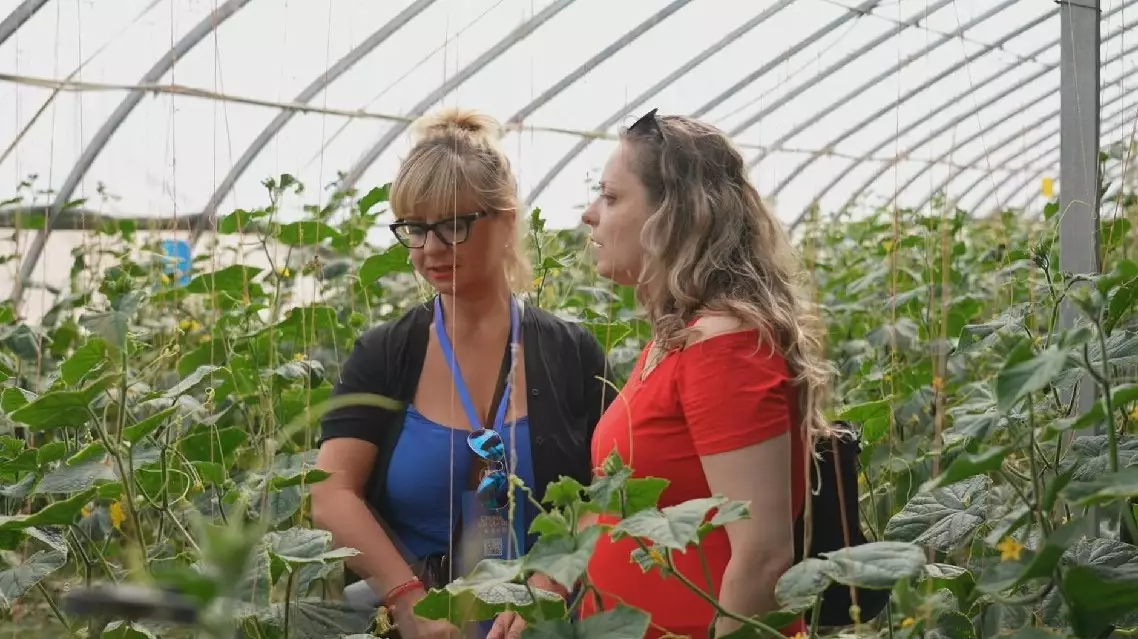
Foreign media professionals laud desertification control of Xinjiang's Aksu
Multiple significant political documents will be signed at the upcoming Meeting of the Council of Heads of State of the Shanghai Cooperation Organization (SCO) which has played an active role as a comprehensive cooperative organization, said Kazakh Ambassador to China.
From July 2 to 6, Chinese President Xi Jinping will attend the 24th Meeting of the Council of Heads of State of SCO in Kazakhstan's capital city Astana, and pay state visits to Kazakhstan and Tajikistan at the invitation of President Kassym-Jomart Tokayev of the Republic of Kazakhstan and President Emomali Rahmon of the Republic of Tajikistan.
Shakhrat Nuryshev, ambassador of Kazakhstan to China, said in a recent interview with China Media Group (CMG) in Beijing, capital of China, that many important documents will be signed during the event, stressing that SCO is never a military group.
"The total number of events to be held during Kazakhstan's SCO presidency has now exceeded 140. Before the summit, we plan to hold a number of ministerial and expert meetings. Of course, the most important event before the summit is the meeting of the Council of Foreign Ministers. At this meeting, we can get an overview of the main content and topics of the upcoming SCO summit, as well as which documents will be signed. We have proposed that the heads of state consider and approve more than 20 resolutions and documents within the framework of SCO at the summit. It is expected that the main political document, the Astana Declaration, will be signed at the summit. All suggestions of member states on the SCO agenda will be reflected in the final document," he said.
"I would like to emphasize that the SCO is not a military bloc, nor a military alliance against any country. The SCO has never positioned itself as a military organization. Although some people try to involve the SCO in such disputes, the SCO has always maintained a balanced position. The SCO is a comprehensive cooperation organization, and the security field is one of the priority areas of cooperation. New challenges and threats are very real problems in today's world," said Nuryshev.
"At the upcoming Astana Summit, we plan to adopt the Cooperation Programme for Fighting Terrorism, Separatism and Extremism for 2025-2027, as well as the SCO Strategy for Fighting Drugs for 2024-2029. This shows that these issues are now on the agenda of our entire organization and we are hopeful of ensuring that the SCO space, which currently covers 26 countries, is a space of peace, creativity and development," Nuryshev said.
Nuryshev also hailed the high-level development of Kazakhstan-China relations.
"The present level of China-Kazakhstan permanent comprehensive strategic partnership is unprecedented, the highest level of bilateral relations, which shows that our two countries have established a relationship of mutual trust and high mutual respect. The Chinese President will attend the SCO summit and visit Kazakhstan soon. This will be his fifth visit to Kazakhstan, which shows the closeness of our bilateral relations. Kazakh President Kassym-Jomart Tokayev visited China three times from May last year to March this year, attending the China-Central Asia Summit, the Belt and Road Forum. This year he also attended the Boao Forum for Asia. All these show that there is a very close and friendly relationship between the two heads of state, which has injected impetus and strong momentum into the development of bilateral relations," he said.
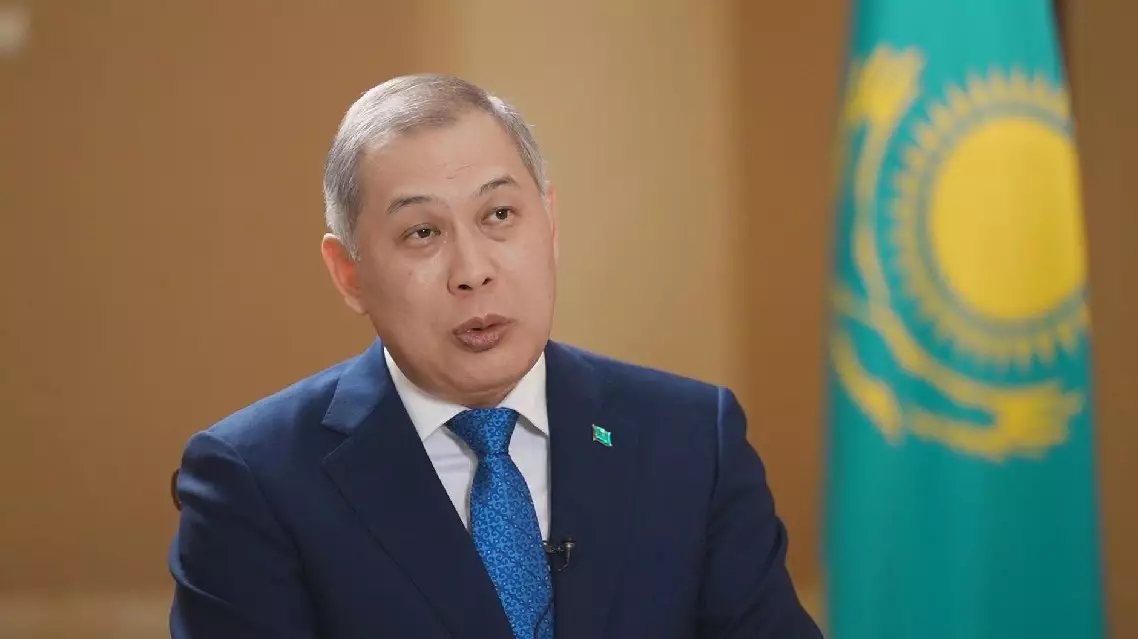
SCO to play active role as comprehensive cooperative organization: Kazakh ambassador




